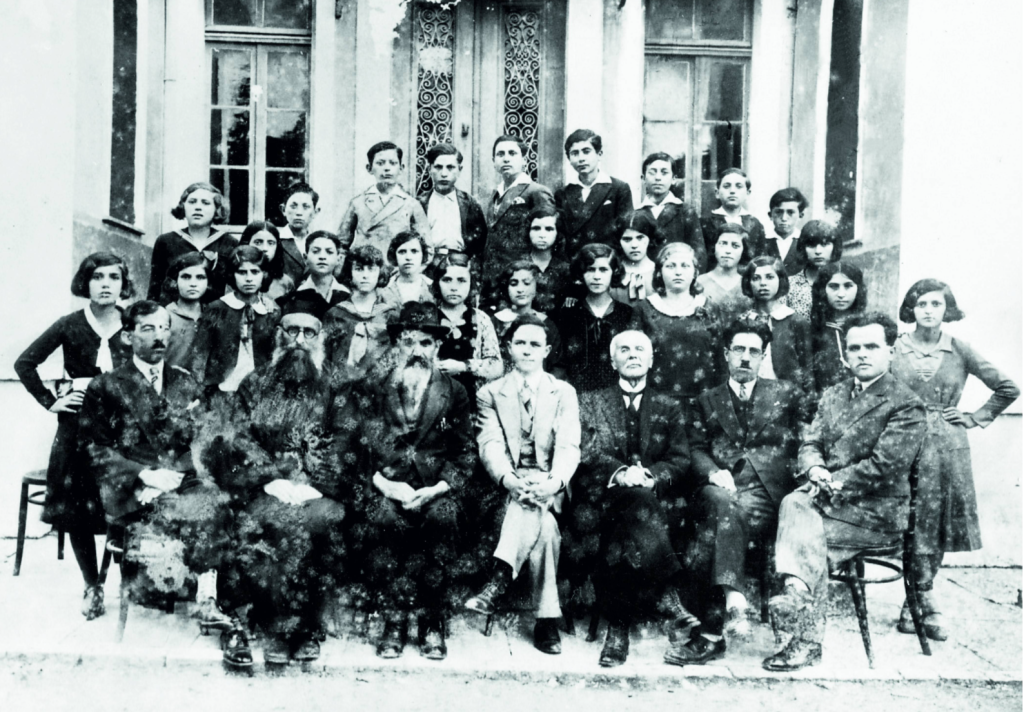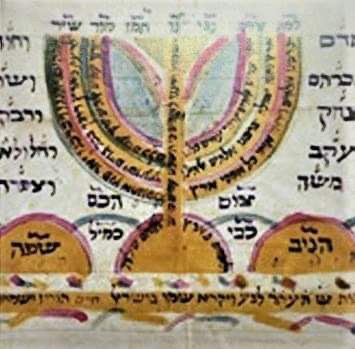
Source of the photograph: The Jewish Museum of Greece, https://www.jewishmuseum.gr
While Hebrew remained the language of religious observation and was also a unifying factor for the Jews of the Diaspora, local communities used the language of the country they lived in, embellishing it with Hebrew words and phrases. Romaniote Jews had, for the greater part, been familiar with Greek since Hellenistic times and this helped them assimilate into the communities that received them. They used Greek as the language of communication in their everyday lives, but used Hebrew characters when writing it. They also imported Hebrew words and phrases into it, Hellenicising the Hebrew syntax and lexical features. This, and the influence of all those who conquered Western Greece at various times, the Venetians, Franks, Ottoman Turks and Albanians, led to the birth of the Graeco-Judaic idiom, a lilting form of language that sat comfortably with the Romaniote communities of Epirus, especially those of Ioannina, and which survived until World War II.
As everywhere in the Diaspora, education was the foundation of the religious identity of Jewish communities in Greece. The Talmud Torah community school for boys in Ioannina had been operating since 1875 with the support of the Jewish Educational Society, which was established at the same time. As well as teaching Hebrew language, Jewish history and Greek, the school also taught Turkish until 1913. There was no official provision for the education of girls until the early 20th century. Jewish girls seeking an education had to attend Christian schools. In 1903 a group of private individuals set up the Agudath Ahim society and managed to convince the people in charge of the Alliance Israèlite Universelle that they ought to open a Α.Ι.U. school in Ioannina. Sure enough, in 1904 the Α.Ι.U, school opened and worked alongside Talmud Torah school, teaching Hebrew language and history, Greek, Turkish and the principles of arithmetic and trade. Particular focus was placed on French language and culture with the result that the school was soon called the Alliance Française. There were also schools for girls and departments for occupational and technical training. Because of the high standard of education they provided, non-Jewish people frequently enrolled at A.I.U. schools.
When Ioannina was liberated and became part of the Greek state in 1913, the Α.Ι.U. schools were recognised by the state and operated under its auspices until the German occupation of Greece. After the war, Jews of Ioannina who had survived the Holocaust did their best to secure a basic Jewish education for the younger members of the community. A small school which taught Hebrew language and Jewish history did operate in Ioannina for a period of approximately ten years, starting in the middle of 1950, but then closed down because of a lack of pupils.
Source of texts and photos: The Jewish Museum of Greece, https://www.jewishmuseum.gr
